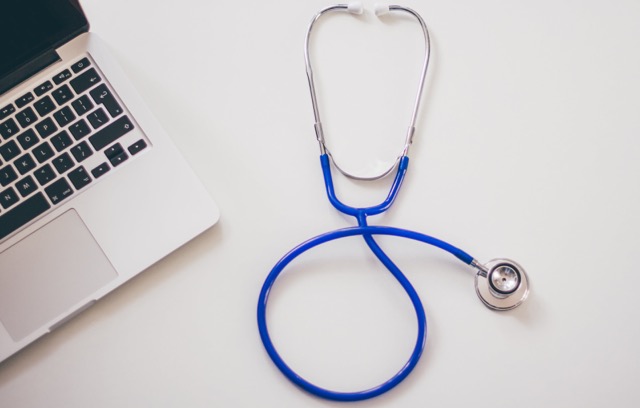Mental Health 101
Learn the basics of mental health, and what you can do to improve yours.

You’ve probably heard the term “mental health” thrown around a lot. But what does it actually mean? And why is it so important?
What is mental health?
According to the World Health Organization, “mental health is a state of mental well-being that enables people to cope with the stresses of life, realize their abilities, learn well and work well, and contribute to their community.” It’s a critical part of overall wellness. Importantly, mental health is more than just the absence of mental disorders or disabilities. Peak mental health is about not only avoiding active conditions, but also looking after ongoing wellness and happiness. It also encompasses resilience – the ability to bounce back from difficult situations, even if none are currently happening.
Why is mental health important?
Mental health is crucial because it can affect every aspect of life. It influences our ability to cope with stress, overcome challenges, build relationships, and recover from life’s setbacks and hardships. Without it, we can’t live our best lives.
A person’s mental health affects how they feel, think, behave, and relate to others. It’s key to our relationships, personal and emotional well-being, and our ability to contribute to our community and society. It plays a major role in our ability to manage feelings and deal with difficulties. And, it’s closely linked to physical health – poor mental health can affect physical wellbeing and vice versa.
So, there’s clearly a lot of reasons to care about mental health. But what can you do to improve yours?
How to improve mental health
Much like physical health, mental health is something that we can actively work on and improve. “Exercising” your mental health is a lot like exercising your body – it’s a combination of healthy habits and regular practice.
Habits to improve mental health
Get enough sleep
Sleep is crucial for mental health, and most people don’t get enough of it. Try to get at least 7 hours of sleep every night – but note that that’s a very broad recommendation! Many people need more. (If you’re constantly tired, that’s probably you.) I personally aim for at least 8.5 hours every night, because I’ve found that it improves my overall resilience to stress.
Eat healthy
Eating a balanced diet is important for both physical and mental health. Try to eat a variety of foods, including fruits, vegetables, whole grains, lean proteins, and healthy fats. And make sure you’re eating enough! Many people don’t eat enough calories, which can lead to fatigue and other health problems.
Social connection
Humans are social creatures, and we need social connection to thrive. Make sure you’re spending time with people who are close to you, and try to build new relationships as well. If you’re struggling to make friends, try joining a club or taking a class. You can also try volunteering – it’s a great way to meet new people and give back to your community. And make sure your social connections aren’t just online if you can – in-person interaction is much more valuable, and social media comes with its own problems, as we’ll discuss later.
Mindfulness
This can take the form of meditation, journaling, and general reflection. Different people respond to different mindfulness tactics differently, so it’s important to experiment to find what works for you. I personally don’t get anything out of meditation, but I absolutely love journaling, and I’ve been journaling with baseline for over two years now.
Start journaling today
baseline is a 100% free, non-profit operated, journaling and mood tracking service that's designed to help people better understand their mental health by building a journaling habit.
Learn MoreAnd of course, exercise.
How does exercise improve mental health?
Research shows that people who exercise regularly have better mental health and emotional wellbeing, and lower rates of mental illness. Exercise can help prevent mental illness, and can be a treatment for anxiety and depression. There’s a lot of theories for how this works, including:
- Exercise releases chemicals in your brain that make you feel good, like endorphins and serotonin, and it changes the balance of stress chemicals in your brain.
- It can help you sleep better, which as we talked about before, improves mental health.
- It provides a distraction for your brain that might be trapped in a spiral.
- It can improve your sense of control, which is especially important for depressive symptoms.
Whatever the case, exercise is a great way to improve your mental health.
Social media and mental health
Social media has the potential to be deeply damaging to your mental health. Social media platforms are designed to be as addictive as possible – they want you to spend as much time on them as possible, because that’s how they make money. Many of them have found that the best way to do this is to show you content that makes you angry, or amplifies your existing negative emotions. And the impacts of this are serious. Studies have shown that social media use is linked to depression, anxiety, and low self-esteem. It’s also been linked to sleep problems, eating disorders, and increased suicide risk.
If you have mental health issues, there is a good chance that they’re being exacerbated by your social media use. These companies spend billions of dollars to know exactly how to exploit your emotions to make you feel worse and keep you addicted to their platforms. The only way to fight back is to reduce your screen time.
I personally have uninstalled all social media apps from my phone, and I only check my accounts about once a week. If you’re not ready to take that leap yet (I wasn’t ready at the start either), we recommend getting an app like one sec, which helps break the dopamine cycle of social media apps.
Facts about mental health
Mental health is one of the biggest crises facing our world today.
- 20% of Americans experience a mental illness each year.
- 40% of Americans saw declines in their mental health over the pandemic.
- 50% of American adolescents have a mental health condition.
And the biggest problem? Very few people have the tools to deal with it themselves.
- 7.7 million children under 17 have an undiagnosed, treatable mental heath disorder.
- The average offset between mental illness offset and treatment is 11 years.
- And even if you do have access to treatment and know you need it, you probably aren’t ready for it. 84% of UK young adults said their dislike of talking about their “feelings, emotions, or thoughts” could stop them from seeking professional help.
Mental health apps
Building habits around mental health can be really hard. Mental health apps can help. You probably carry your phone around with you everywhere, so it’s much more accessible than, for example, a physical journal for journaling. And, because it’s on your phone, it can send you reminders to help build better mental health habits.
Best free mental health apps
Here are some of our favorite free mental health apps in different categories:
- Journaling: baseline. baseline is a non-profit operated journaling app designed to be an entrypoint for people who want to work on their mental health. If you’re looking for a place to start, I highly recommend starting here.
- Meditation: Headspace. Headspace is a great app for guided meditation. It’s a great way to get started with meditation, and it’s completely free for students.
- Phone Addiction: one sec. one sec is a powerful tool for breaking the dopamine cycle of social media apps. It’s a great way to reduce your screen time and improve your mental health.

